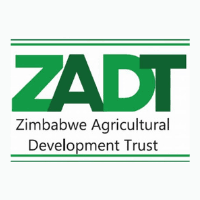Terms of Reference (ToR) for Developing an analysis and audit of progressive care policies in the SADC region.
Consultancy, Research Jobs
- Expires 12 May 2025
- Harare
- Full Time
Job Description
1. Background
Unpaid care and domestic work (UCDW) are essential to the functioning of households, communities, and economies, yet they remain largely invisible in economic planning and decision-making. In Zimbabwe, these activities are disproportionately carried out by women and girls, perpetuating gender inequalities and limiting their participation in economic and public life. The integration of care work into broader macroeconomic and social policy discussions is crucial to achieving gender-just economic recovery and sustainable development.
In Zimbabwe, the burden of unpaid care and domestic work disproportionately falls on women and girls, reflecting deeply entrenched societal norms and gender roles. This unequal distribution of labor not only reinforces existing gender disparities but also constrains women's and girls’ access to education, economic opportunities, and participation in public life. As a result, UCDW serves as both a symptom and a driver of gender inequality, limiting progress toward gender equality and sustainable development.
Recognizing the significance of addressing these challenges, integrating care work into broader macroeconomic frameworks, social policy discussions, and development planning is essential. Doing so is a crucial step toward creating a gender-just economic recovery and fostering inclusive and sustainable development. By valuing and redistributing UCDW through targeted interventions, it is possible to reduce inequalities and unlock the full potential of all individuals to contribute to economic and social growth. Building on the momentum from prior projects, this assignment will focus on producing a detailed issues paper to inform policy advocacy, programming, and awareness around UCDW in Zimbabwe.
2. Objective of the Consultancy
• To identify best practices in progressive care policies across the SADC region that promote gender-responsive and care-focused frameworks.
• To analyse and audit existing care policies to uncover gaps that hinder the development of equitable and inclusive systems.
• To explore opportunities for improving and strengthening care policies to better address gender and care-focused priorities in the region.
• To provide actionable recommendations for enhancing the implementation and effectiveness of gender-responsive and care-focused policies in SADC member states.
Duties and Responsibilities
3. Scope of Work
The analysis and audit of progressive care policies in the SADC region will focus on:
1. Reviewing Existing Policies, conducting a detailed review of care policies across SADC member states to evaluate their alignment with gender-responsive and care-focused principles.
2. Identifying Best Practices, highlighting successful approaches and strategies that can serve as models for other member states.
3. Gap Analysis, examining existing policies to identify areas of weakness or inconsistency that impede the achievement of gender equality and care-focused goals.
4. Exploring Opportunities, pinpointing actionable opportunities to strengthen and enhance care policies for better alignment with regional and global standards.
5. Policy Recommendations, developing recommendations for improving care policies to ensure they are inclusive, effective, and gender responsive.
4. Deliverables
I. Comprehensive Policy Review Report
a. A detailed document analysing current care policies in the SADC region, including their strengths, weaknesses, and alignment with gender-responsive and care-focused principles.
II. Best Practices Compilation
a. A summary of successful care policy examples from SADC member states, highlighting strategies that promote gender equality and care-focused frameworks.
III. Gap Analysis Report
a. An in-depth analysis identifying policy gaps and challenges that hinder the achievement of gender-responsive care objectives in the region.
IV. Opportunities and Recommendations Report
a. A report outlining opportunities for improvement and providing actionable recommendations to strengthen care policies across the SADC region.
V. Presentation or Workshop Materials
a. Materials summarizing key findings and recommendations, tailored for stakeholders, policymakers, and partners to facilitate advocacy and implementation efforts.
Qualifications and Experience
5. Qualifications and Experience
The ideal consultant(s) should possess:
• A strong background in gender studies, feminist economics, or sociology.
• Proven ability to conduct detailed audits, gap analyses, and comparative policy reviews, with strong report-writing skills.
• Familiarity with the socio-economic and political contexts of SADC member states, including experience working within the region.
• Demonstrated experience in analyzing care policies, with a strong understanding of gender-responsive and care-focused frameworks.
• Ability to communicate complex findings clearly and effectively to diverse audiences, including policymakers and grassroots stakeholders.
How to Apply
6. Application Process
Interested candidates are invited to submit the following:
• A technical proposal outlining the approach, methodology, and work plan.
• A financial proposal detailing the budget for the assignment.
• CV(s) of the consultant(s) or team.
• Samples of previous work on related topics.
7. Submission Deadline
Applications should be sent to procurement315@gmail.com by 12 May 2025



